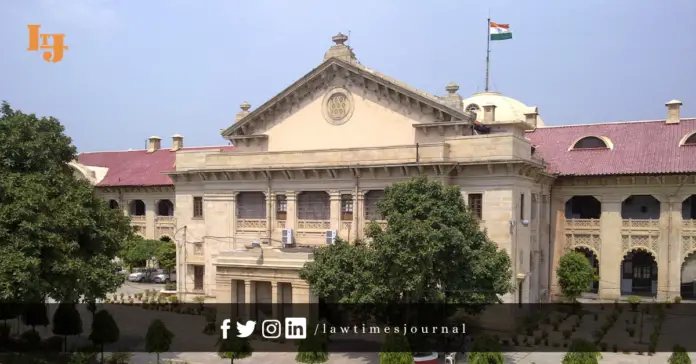
In a recent judgment by the Allahabad High Court, the Court reiterated that, any alleged act of intentional insult or intimidation causing humiliation will constitute an offence under the Schedule Caste and Schedule Tribe (Prevention of Atrocities) Act, 1989 only is such act of insult or intimidation is committed in Public View. Justice Ram Krishna Gautam in view of Section 3(1)(x) of the SC/ST Act observed that, any act which takes place behind a locked door would not constitute an offence under the said Act, since such acts cannot be said to be in Public View.
Prior Facts of the Case
In the present case one Vinod Kumar Tanay accused the applicants alleging that the applicants, who were two upper caste officers, who were involved in adjudicating departmental proceeding which was initiated against Tanay, that the two officers in the chamber of the Enquiry Officer (also an applicant) had assaulted him and insulted him by taking name of his Caste during the adjudicating proceeding. Tanay filed a complaint in this regards accusing the Officers of various offences, including offences under Section 3(1)(x) of the Schedule Caste and Schedule Tribe (Prevention of Atrocities) Act, 1989.
Key Features
- Section 3(1)(x) of the Schedule Caste and Schedule Tribe (Prevention of Atrocities) Act, 1989 states, “intentionally insults or intimidates with intent to humiliate a member of a Scheduled Caste or a Scheduled Tribe in any place within public view.”
- The Court observed that, any act which takes place behind a locked door would not constitute an offence under the SC/ST Act, since such acts may never be said to be in Public View.
- The Court taking the view of the Supreme Court in Vaijnath Kondiba Khandke v. State of Maharashtra reiterated that bald allegations by junior employees against their seniors should be analyzed strictly, so that the administrative seniors can extract work from the junior employees.
Allahabad HC’s Order
Justice Ram Krishna Gautam, noting Section 3(1)(x) of the Schedule Caste and Schedule Tribe (Prevention of Atrocities) Act, 1989 which states, “intentionally insults or intimidates with intent to humiliate a member of a Scheduled Caste or a Scheduled Tribe in any place within public view”, observed that, any act which takes place behind a locked door would not constitute an offence under the SC/ST Act, since such acts may never be said to be in Public View.
The Court found that, “The door was locked from inside. It was a Chamber of the Enquiry Officer, where Presenting Officer and Enquiry Officer were present and it can never be said to be a public view. Even if, any occurrence took place at that place, it may never be said to be a public view and it has been verified by apex court, mentioned as above. Hence, the very ingredient of offence punishable under Section 3(1)(x) of the Act was missing.”
Further, the High Court also added the fact that, in the statement recorded by the complainant under Section 200 of CrPC before the Magistrate, he did not mention anything about being insulted for his caste by the two Officers. The High Court also observed, taking in view the judgment of the Supreme Court in Vaijnath Kondiba Khandke v. State of Maharashtra that, bald allegations by junior employees against their administrative seniors should be analyzed strictly. This is to be done so that the administrative seniors can extract work from the junior employees.
In view of the above observations, the High Court quashed the Criminal Summon issued against the applicants, and concluded that, “prima facie, he (complainant) was delinquent employee, for which charge was framed. Preliminary inquiry stage was passed. Thereafter, departmental enquiry was being conducted and when this enquiry was conducted this fuss was created. Who created this and what was the precipitating point was to be visualized and examined by Magistrate before summoning applicants, but casually impugned order of summoning for offence punishable under Section 3(1)(x) of the Act was passed. On above facts and circumstances, as apparently offence under Section 3(1)(x) of the Act was not made out, on the basis of evidence collected in inquiry by Magistrate concerned, hence this application merits to be allowed in part.”
Edited by J. Madonna Jephi
Approved & Published – Sakshi Raje
Reference
1. KP Thakur and Another v. State of UP and anr., Application U/S 482 No. 40418 of 2012.








